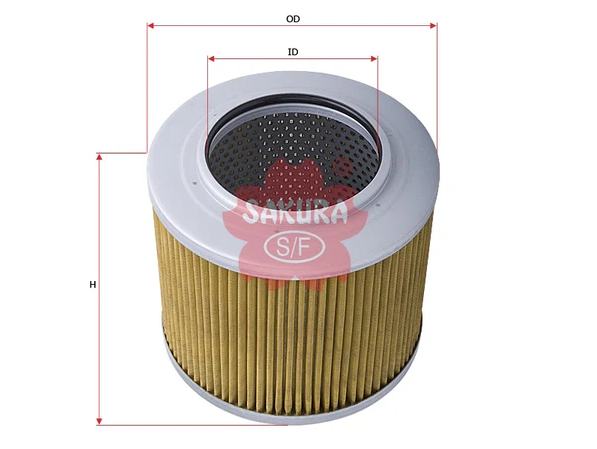
The Essential Role of Hydraulic Filters in Modern Automotive Systems
The Essential Role of Hydraulic Filters in Modern Automotive Systems
Modern automotive systems are becoming increasingly complex, relying on various technologies to function efficiently. Hydraulics play a crucial role in many of these systems, providing power and control for functions such as braking, steering, and suspension.
Clean hydraulic fluid is essential for the optimal performance and longevity of these systems. Contaminants such as dirt, debris, and moisture can compromise the effectiveness of the fluid, leading to potential system failures and costly repairs.
Hydraulic filters are integral in maintaining clean hydraulic fluid. Regularly replacing these filters is essential to ensure the continued smooth operation of automotive systems.
The Inner Workings of Hydraulic Filters
Hydraulic filters are essential components in automotive systems, tasked with capturing contaminants from the hydraulic fluid to maintain system cleanliness and performance. Understanding their inner workings is crucial for ensuring the longevity and efficiency of these systems.
Functionality
At their core, hydraulic filters function by capturing contaminants present in the hydraulic fluid. As fluid flows through the filter, the filter media traps particles, preventing them from circulating further into the system.
Filter Components
- Filter Media: This is the material within the filter that captures contaminants. It is designed to allow fluid to pass through while trapping particles.
- Bypass Valve: In cases of high contamination or clogging, the bypass valve allows fluid to bypass the filter to ensure continuous fluid flow. However, this should only occur under extreme conditions, as it compromises filtration efficiency.
Flow Diagram
Fluid enters the filter, passes through the filter media, where contaminants are captured, and exits the filter, now cleaner and ready to re-enter the hydraulic system.
Understanding these components and their function is key to appreciating the importance of hydraulic filters in maintaining the cleanliness and efficiency of automotive hydraulic systems.
The Benefits of Hydraulic Filters
Hydraulic filters offer several key benefits that contribute to the overall efficiency and reliability of these systems.
Preventing Wear and Tear
Contaminants present in hydraulic fluid, such as dirt and debris, can act as abrasives, causing wear and tear on critical components such as pumps, valves, and actuators. By capturing these contaminants, hydraulic filters help prevent damage and extend the lifespan of these components, reducing the need for costly repairs and replacements.
Maintaining Efficiency
Clean hydraulic fluid is essential for maintaining the efficiency of hydraulic systems. Contaminants can disrupt the flow of fluid and interfere with the operation of hydraulic components, leading to power loss and reduced performance.
Protecting Against Breakdowns
Clogged filters can restrict the flow of hydraulic fluid, leading to increased pressure within the system and potential component failure. The risk of unexpected breakdowns is significantly reduced when these filters are replaced regularly.
Cost Savings
Proper hydraulic filtration can result in significant cost savings over time. Businesses can save on maintenance costs by implementing effective hydraulic filtration practices. Additionally, the use of high-quality filters can reduce energy consumption, further lowering operating costs.
Consequences of Poor Filter Maintenance
Neglecting hydraulic filter maintenance can have serious consequences, impacting both the performance and longevity of automotive hydraulic systems. It is essential to understand the risks associated with poor filter maintenance to avoid costly repairs and system failures.
Increased Wear
Hydraulic contamination can accelerate wear on critical system components such as pumps, valves, and actuators. These contaminants act as abrasives, causing friction and wear that can lead to premature failure of the hydraulic pumps and motors.
Reduced Performance
Clogged filters restrict the flow of hydraulic fluid, hindering the system's ability to deliver power effectively. This restriction can result in sluggish operation, reduced efficiency, and overall decreased performance of the hydraulic system.
System Breakdowns
Failure to maintain hydraulic filters can ultimately lead to system breakdowns. Clogged filters can cause pressure buildup within the system, leading to component failure and the need for costly repairs or replacements.
Environmental Consequences
Improper disposal of used hydraulic filters can have environmental consequences. Hydraulic fluid contamination can cause harmful substances to leach into the environment if not disposed of properly. It is essential to follow proper disposal practices to minimise environmental impact.
Best Practices for Filter Maintenance
Maintaining hydraulic filters is essential for ensuring the longevity and performance of automotive hydraulic systems. Here are some best practices to follow:
Filter Selection
When selecting a hydraulic filter, consider factors, such as the vehicle make and model, the type of hydraulic fluid used, and the recommended micron rating. Choose a filter that meets the specifications outlined by the vehicle manufacturer to ensure optimal performance.
Avoid Contaminated Fluids
Purchase hydraulic fluid from reputable sources or manufacturers who adhere to strict quality control measures during hydraulic fluid production, use clean and properly maintained equipment and ensure proper storage and handling practices. Here are some methods to determine if hydraulic fluid is contaminated:
Particulate Contamination
- Presence of any visible particles or debris.
- Signs of debris buildup or clogging.
Air Contamination
- Excessive foaming of the hydraulic fluid can indicate the presence of air.
- Unusual noise, such as banging or knocking, can indicate air in the hydraulic system.
- Air entrainment can cause the fluid level to fluctuate as air bubbles are circulated through the system.
Moisture Contamination
- Cloudiness or haziness in the hydraulic fluid.
- Water droplets may also be visible at the bottom of the reservoir.
- Fluid may appear milky or cloudy.
- Signs of rust or corrosion on metal components of the hydraulic system.
Proper Fluid Storage
Store hydraulic fluid in clean, sealed containers to prevent contamination. Avoid storing fluid near sources of dirt, dust, or moisture, and use dedicated equipment for handling to maintain its cleanliness.
Replacement Schedule
Follow the manufacturer's recommended replacement intervals for hydraulic filters, which can be found in the owner's manual. Replacement intervals are typically based on operating hours or specific timeframes. Regularly replacing filters helps maintain system cleanliness and prevents potential internally generated contamination.
Check for Manufacturing Debris
Before installing new filters, ensure that the hydraulic system is free from any debris that may have been acquired during the manufacturing process. Even small particles can lead to filter clogging and system inefficiencies.
Proper Disposal
Used hydraulic filters should be disposed of responsibly to minimise environmental impact. Many automotive stores and service centres offer designated collection facilities for used filters. Check with your local recycling or waste management facility for proper disposal options in your area.
The Future of Hydraulic Filtration
Looking ahead, several advancements promise to reshape this landscape, driven by the convergence of material science, sensor technology, and a growing emphasis on sustainability.
Enhanced Filtration Media
The future holds promise for filter media with superior contaminant capture capabilities. Nanotechnology and advanced materials will lead to the development of filters capable of removing even the most minuscule particles from hydraulic fluids, further improving system cleanliness and extending component life. Additionally, integrating sensors directly into the filter media could provide a more precise indication of filter health by monitoring contaminant levels.
Smarter Monitoring Systems
As sensor technology continues to shrink in size and cost, online monitoring systems are poised to become more commonplace in vehicle hydraulic systems. These systems will offer real-time insights into filter health, including differential pressure, bypass valve activity, and potentially even contaminant levels. Integration with vehicle telematics could allow for remote monitoring by service providers, enabling proactive maintenance and preventing unexpected breakdowns.
Sustainable Practices
Environmental consciousness is a growing concern, and hydraulic filtration is no exception. Biodegradable filter media derived from sustainable resources is a promising development that could significantly reduce the environmental impact of used filter disposal. Furthermore, sensor-based monitoring systems can optimise filter replacement schedules, minimising unnecessary changes and reducing waste.
Focus on Efficiency and Lifespan
The future of hydraulic filtration will likely focus on extending fluid life and improving system efficiency. This could lead to longer intervals between fluid changes and reduced overall maintenance costs. More ambitious advancements might explore self-cleaning or regenerating filters for specific applications, extending their lifespan by periodically removing captured contaminants.
Final Thoughts
Hydraulic filters play a critical role in modern automotive systems, ensuring the cleanliness and efficiency of hydraulic oil. Proper maintenance of these filters is essential for optimal performance, cost savings, and vehicle longevity.
By selecting the right filter for your vehicle, following the manufacturer's recommended replacement schedule, and ensuring proper disposal of used filters, you can help maintain the performance and reliability of your vehicle's hydraulic system.
For specific recommendations regarding hydraulic filter maintenance, consult your owner's manual or speak with a qualified mechanic. Taking these steps can help ensure the smooth operation of your vehicle's hydraulic system for years to come.
Don't compromise on performance and safety! Ensure your car's hydraulic system is functioning optimally with a fresh hydraulic filter from Filters & More. Contact us or browse our selection to find the perfect fit for your vehicle.




